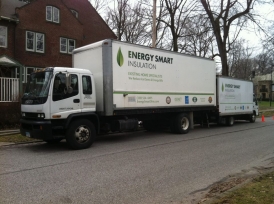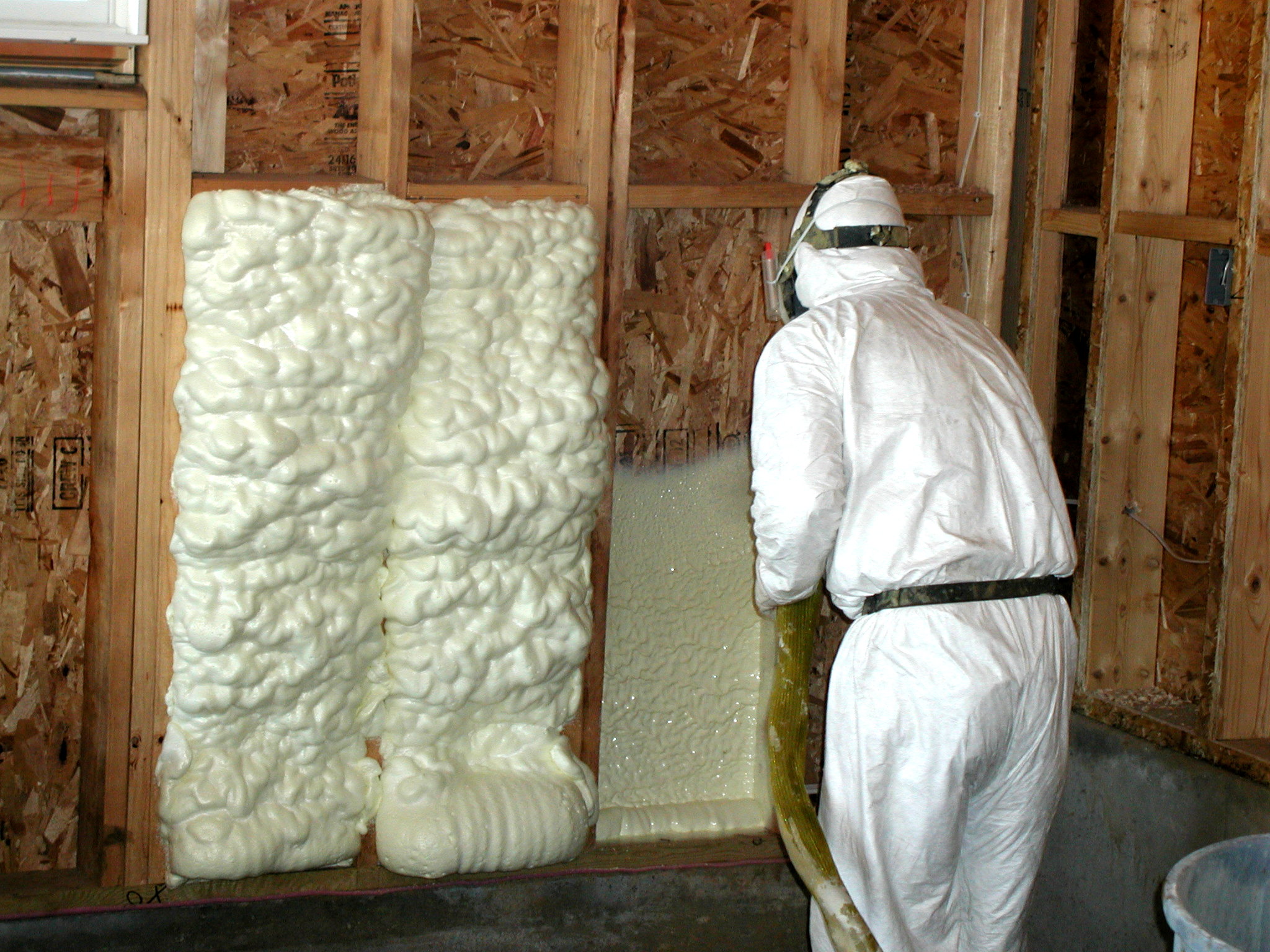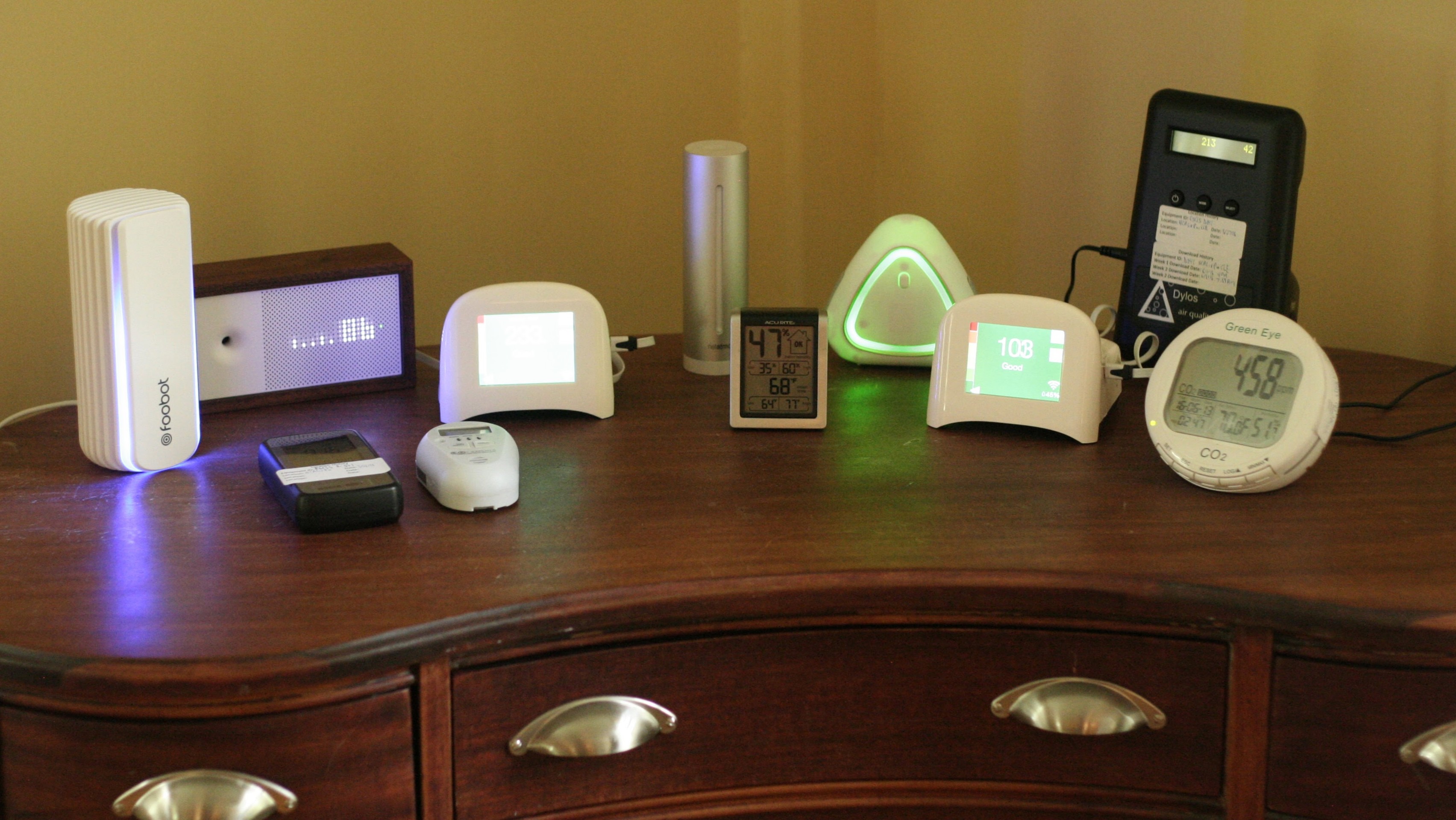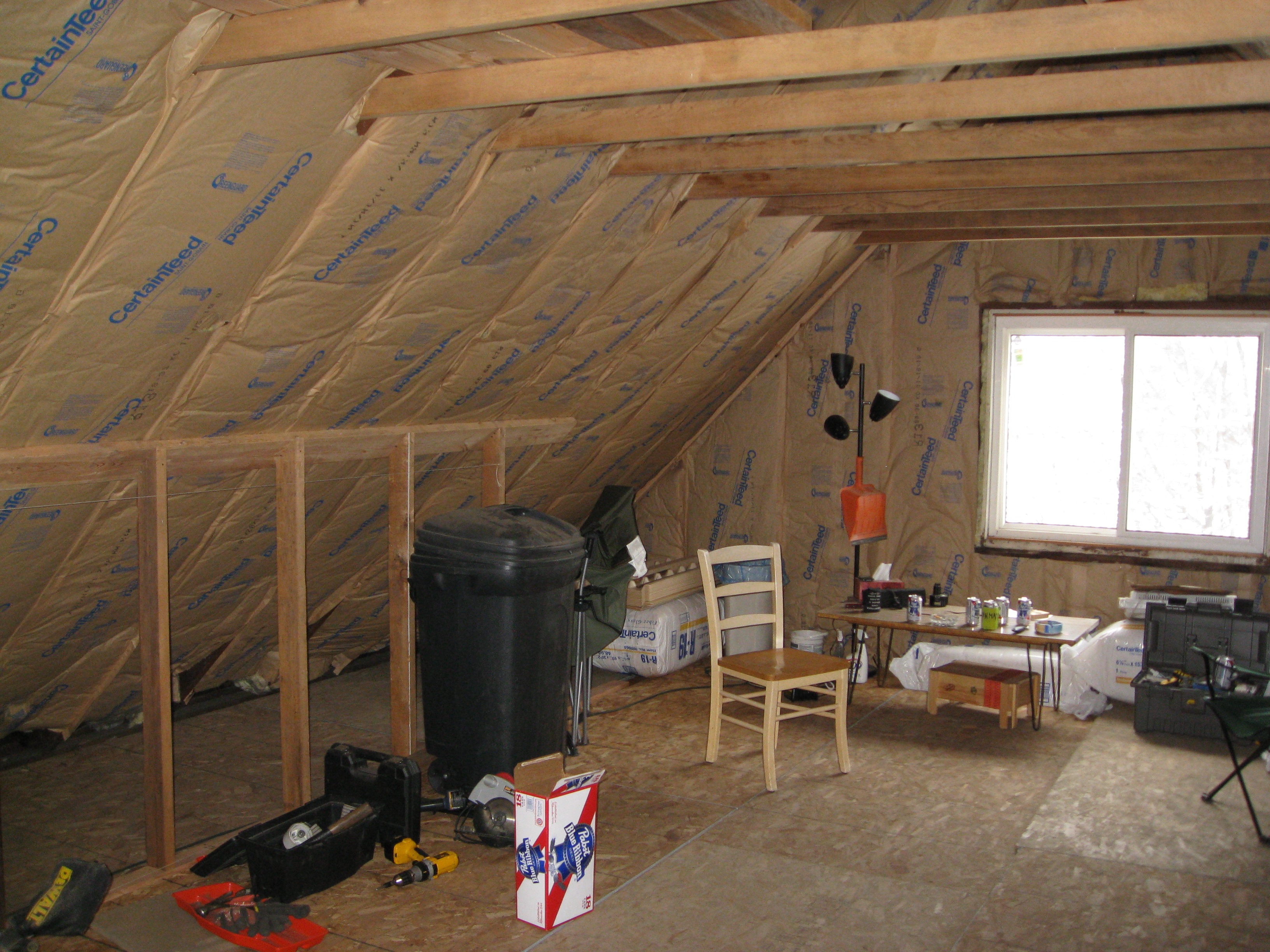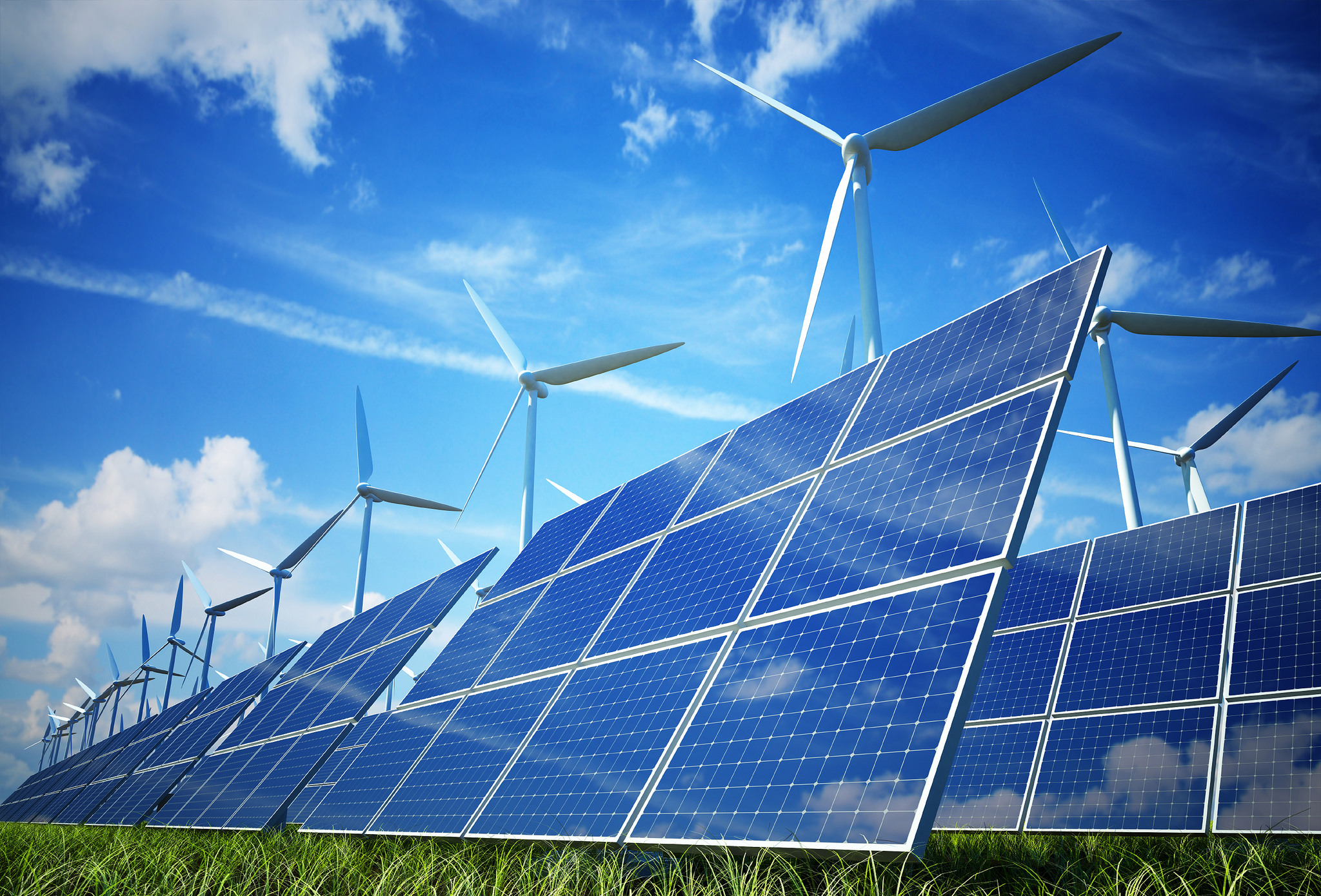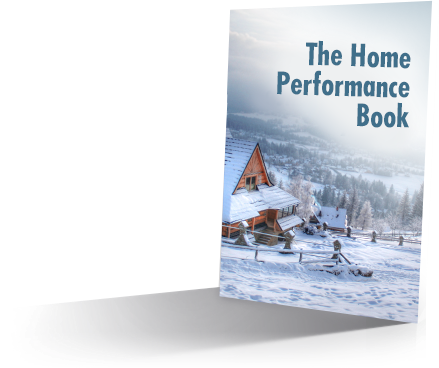Why Gas Water Heaters Suck – A Comparison
Image Credit: Florida Solar Energy Center
If you are getting ready to replace a water heater, read this first.
Yes, we have a bias, as indicated by the title, but we’ll make the case for why we have it.
The primary thing we don’t like about natural gas (or propane) water heaters is the chance of creating high levels of carbon monoxide (CO) in homes. That’s a big potential problem that few are aware of.
We don’t particularly like gas stoves, either, since all of their combustion gases end up inside the home including CO, but also nitrous oxides and other nasties. In fact, we’d rather you not burn anything at all in your home for health reasons, check out our indoor air quality (IAQ) page for more.
Holistic Thinking
We think holistically about homes, so water heating (and cooking) are just a few of the things that go into our considerations. Most people you’ll talk to about water heaters are the ones who will be installing it, they typically aren’t aware of how it fits into the system of systems that is your home. Few consider the implications on indoor air quality, health, comfort, future proofing your home, and so forth. They just want to sell a water heater. Energy auditors like us think bigger than that.
Carbon Monoxide Health Effects
In home exposure to CO leads to around 200 deaths a year, and it seems like Cleveland gets hit fairly hard, a couple died in 2012, then 11 were hospitalized with one dead in 2014.
While the number of deaths isn’t that high, carbon monoxide poisoning leads to an estimated 40,000 hospital visits per year in the US. Even at low levels, it can be bad. According to occupational health practitioners, ‘chronic exposure to relatively low levels of carbon monoxide may cause persistent headaches, lightheadedness, depression, confusion, memory loss, nausea and vomiting.’
This bugs us because it is completely preventable for between nothing and a several bucks a month – with an electric powered hot water heater.
More on that in a bit, first, let’s lay out a few definitions and the main types of water heaters.
Combustion Appliance – Any appliance in your home that burns fuel. The fuel could be natural gas, propane, fuel oil, wood, etc. The most common are your furnace, water heater, gas stove, gas dryer, and fireplace.
Backdrafting – Normally warm air goes up a flue or chimney. If conditions are right, though, your water heater or other combustion appliance may suck air down the flue to burn because it can’t get enough air somewhere else, spilling all sorts of nasty stuff into the house.
When a home gets tightened they become substantially more prone to backdrafting.
Dryers suck a lot of air out of the house, as do range hoods, bathroom fans, whole house fans, etc. Any of these may cause backdrafting. We recently replaced a water heater when we air sealed the basement – the basement is now dry, but the water heater had nowhere to pull air from. It backdrafted horribly, potentially putting our client’s life at risk.
Combustion Safety Testing – The art and science of measuring whether problems with your combustion appliances are currently present, or likely under possible circumstances.
The trouble is, no method is foolproof to guarantee there won’t be an issue – we can’t test how a water heater works on a 90 degree day (when they tend to backdraft more) on a 10 degree January day. More in the related articles section.
OK, let’s look at the main types of water heaters.
There are more, but they are fairly obscure (some of these types are obscure already!)
Gas Water Heater Types:
-
1. Natural draft gas water heater– You probably have one of these in the basement. A metal pipe comes off the top of it and goes to a flue, which could be your chimney or a bigger metal pipe. Cost: Pretty cheap, $1000 +/- $300.
-
Induced draft water heater – These have a fan on the top of a standard water heater, they literally suck the combustion gases out of the home. There are many fewer combustion issues with this type, but they still pull their combustion air (the needed oxygen) from inside the house. Sucking on a house brings lousy stuff that’s in the walls, basement, crawlspace, or attic into the house. If it has a metal flue pipe, it goes to your chimney, if it is a plastic flue pipe, it’s a high efficiency model. This type is somewhat common. Cost: 2-3 times standard gas water heater.
-
Sealed combustion water heater – These have two plastic pipes, one that pulls in outside air, the other that exhausts combustion air. If you are set on a gas water heater, this is our leaning, but we have heard of early failures of the Vertex line. They are very rare in our market. Cost: 3-5 times standard gas water heater. These are expensive enough that it is often less expensive to buy a heat pump water heater (our bias.)
-
On demand/tankless gas water heater – All the rage a few years ago, these heat water instantly as needed. Higher end models often avoid ‘cold sandwiches’ where the water starts out hot, gets a little cold water out of the system, then gets hot again. The dirty secret is that they need to be flushed once a year or they tend to break early. This service costs around $100/year. If you have a large family of teenagers, though, this may be the lowest cost option overall. Cost 3-7 times standard gas water heater.
Electric Hot Water Heater Types
-
Plain old electric hot water tanks – These have been around forever. It’s just a big tank like a natural gas water heater, only electric powered. They are more expensive to operate than most types, although if you have a small household of 2-3 people that cost difference is often $50-150/year.1 They’re one of the cheapest options, essentially the same cost as a plain old gas water heater (the one we strongly dislike). The main failure part can be replaced by the homeowner (the heating element.) Cost: About what a standard hot water heater costs, plus wiring it the first time. $800-$1400.
2. Heat pump water heaters – These pull heat out of the area the water heater is in to heat the water for the house. They dehumidify the air as well. They need to be in a large open space. Their operation cost is similar to that of natural gas. In a pinch, they operate like standard water heaters with resistance electric. We think these are really cool, and that they will take over the market in time. Early models were prone to failure, note that the bad reviews are several years old. Cost: 2-5 times regular electric tank.
-
3. Instant electric water heaters – These need a ton of electricity to work, and often have very low flow rates, they may only be enough for a sink. Few are capable of running two showers simultaneously. These also need annual flushing. Cost: 1/2-3 times a plain electric water heater, depending on size.
As you can see, there are ups and downs to every type. Here are the more general pros and cons:
Natural Gas Pros:
-
Cheap to operate. Natural gas is typically the cheapest fuel we can buy. Propane, not so much, it typically costs 2-3 times as much as natural gas, which is similar to electricity costs.
-
Very fast recovery. Drain the tank? Just wait 10-15 minutes and the next person can take a shower.
Natural Gas Cons:
-
They suck. Literally. Combustion safety problems are way more common than they should be. Consider getting an energy audit to test.
-
Better houses suck more. As you tighten a house to make it more comfortable and efficient, the odds of combustion safety problems go up, and the cost to fix them goes up as well.
-
Drafts. If you have a flue, it is a major air leak in your home that is making your home less comfortable and more expensive to heat and cool. This is the second big thing we don’t like about standard gas water heaters.
Electric Pros:
-
No Combustion Safety Problems. Period. Like, ever.
-
Some Are Inexpensive to Operate. Heat pump water heaters have similar operating costs to gas water heaters. (Depending what climate you live in, what your energy costs are, and how much water you use this can vary.)
-
Stops Drafts and Air Leakage. Flues are a major air leak, often they can be plugged when installing an electric water tank. Air leakage is the biggest driver of comfort problems and energy use in many, if not most homes.
-
Save $300/year! By disconnecting your gas meter. If you switch other gas powered appliances to electricity, you can disconnect your gas meter. Gas meters often cost $25/month just to have. Check your bill. That’s $300/year, way more than the extra cost of electricity for water heating.
-
Good for the Grid. The power company can dump excess power into your hot water heater when there is more being produced than is being used. You’ll use that hot water, so the power isn’t wasted. Alternately, they can cycle off the power to the water heater for a few seconds at a time when the grid needs more (you’ll never miss it). This isn’t common yet, but it’s coming, and you’ll likely get paid for it.
-
Did I mention no combustion safety problems? No carbon monoxide, no nitrous oxides, no soot, no backdrafting?
-
Future Proofing. It’s very likely that our economy will switch to being all electric in the next few decades, this is just being ahead of the curve.
Electric Cons:
-
Often more expensive to run. This is typically $50-150/year, or $5-13/mo. The more you use, the more it will cost. If you use a lot, consider a heat pump water heater with a similar energy cost to gas, but higher up front cost. If you get a high quality energy audit with an energy model (which predicts after improvement energy use), you’ll get a good ballpark of what to expect, it is part of Energy Smart’s process.
-
Slower recovery. A tank will usually handle several showers back to back, but then may need a little longer to get hot again compared to natural gas or propane powered hot water heaters. Don’t freak, though, we’re talking 20 minutes instead of 10. You already stagger showers when the whole family comes over during the holidays, right? This is not a huge deal. Check out the recovery article below for more.
-
You may need a bigger electric box. Wiring will also have to be run to the new tank. This is a one time expense, though.
So there you go. Why we think gas powered water heaters suck.
As you improve your home, the odds of backdrafting and breathing carbon monoxide get too high for our tastes. They also are a cause of drafts in your home. Gas water heaters without these problems are expensive enough you can just get a good electric one, like a heat pump water heater. Even if you get a cheap electric water heater, they only cost $5-13/mo to completely eliminate the chance of, well, death from the water heater. Cheap insurance in our minds, and advice you won’t get from your plumber, electrician, or HVAC guy.
What to Do
When your water heater dies next time, consider going electric. A plain old one if you have a small household, a heat pump water heater if you have a bigger one. Check out our Amazon store to see what they look like. We think in the next 10-20 years this will be common sense. This is the future proofing part.
Why? Our economy will be gradually switching over to all electric, just like we switched from wood to coal to oil & natural gas in the past. Electricity will soon be the cheapest (and best, actually) way to heat your home and water. Check out our article on why oil is dead, but it’s ok – it’s not a tree hugger argument. You heard it here first, folks. More on electricity being best in future posts.
Thirsty for More?
Want more interesting stuff like this in your inbox? Sign up for our blog! We won’t pepper you with stuff, frankly we’re too busy out fixing houses to write that much anyway! New post every sometimes, just like Wait But Why. =)
Want Some Help?
If you live near Cleveland, absolutely we can help! If not, we may be able to help connect you to someone who can.
Here’s what to do:
1. Check out this video that walks you through our process and reasoning,
2. Fill out our questionnaire which gets you a discount on an initial consultation. Even if you aren’t local, please fill it out.
Related Articles
DavidR Blog – David Richardson is a friend, HVAC expert, and carbon monoxide crusader. Look for articles on his blog about water heaters, here are 3:
Three visual signs that your water heater may be backdrafting – no testing required.
The most dangerous installation allowed by code.
Why natural draft water heaters can be so dangerous.
Water Heater Rescue – A good site with lots of info on all types of water heaters.
Carbon Monoxide Poisoning – Wikipedia – As always a good source of reliable information.
Are we off track with combustion safety testing? Energy Vanguard – A somewhat technical, but very readable look at the arguments around combustion safety testing in the Home Performance industry. Even if you test, you can be wrong. The author and another friend, Allison Bailes, is a good one to read, he is a former physics teacher and is easy to understand.
How quickly will my water heater recover? Comparing different water heater types and how fast they can heat water. Our friend Sean Lintow looks at options. (Do you get the feeling it’s a small world? It is. =)
Florida Solar Energy Center (FSEC) Hot Water Studies – If you want to go into the weeds on hot water heaters, here is your chance complete with formulas and charts. These guys do what we like to do – they measure. They can kick our butts at that any day, granted they have this magical thing called ‘funding.’
Oil Is Dead And It’s No Big Deal – How and why the world economy will switch off fossil fuels in coming decades. It’s a green argument, but money green, not treehugger green.
IAQ Radio Interview – Nate Adams was interviewed by Joe Hughes of Indoor Air Quality Radio 6/5/15. Check out the podcast. The second half of the show is about indoor air quality in particular. The last comment was to get rid of combustion appliances like water heaters (and furnaces.)
1 Backup for our cost claims. This paper digs deep and compares most of the HWH types here, but adds solar hot water heating. It’s important to note this test was done in Florida, so results are likely to be somewhat different in colder climates. Below is a chart showing energy usage for various types. At $.10/kilowatt hour under the middle conditions, a standard electric tank will cost $294/year. This heat pump hot water heater would cost $113/yr. At $1/hundred cubic feet (ccf) the gas water heater would cost $156/yr. These are for standard households, smaller households will see lower costs, larger households will see higher costs.
Get the HVAC Guide

It's free! Make buying a new furnace, air conditioner, or heat pump less stressful.


